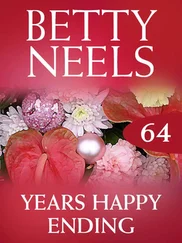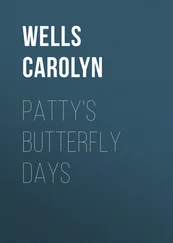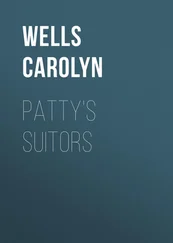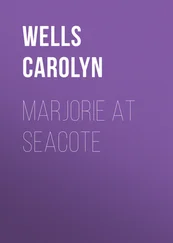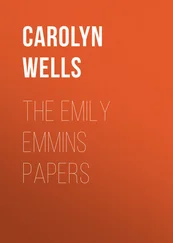Carolyn Wells - Betty's Happy Year
Здесь есть возможность читать онлайн «Carolyn Wells - Betty's Happy Year» — ознакомительный отрывок электронной книги совершенно бесплатно, а после прочтения отрывка купить полную версию. В некоторых случаях можно слушать аудио, скачать через торрент в формате fb2 и присутствует краткое содержание. ISBN: , Издательство: Иностранный паблик, Жанр: foreign_prose, на английском языке. Описание произведения, (предисловие) а так же отзывы посетителей доступны на портале библиотеки ЛибКат.
- Название:Betty's Happy Year
- Автор:
- Издательство:Иностранный паблик
- Жанр:
- Год:неизвестен
- ISBN:http://www.gutenberg.org/ebooks/45577
- Рейтинг книги:4 / 5. Голосов: 1
-
Избранное:Добавить в избранное
- Отзывы:
-
Ваша оценка:
- 80
- 1
- 2
- 3
- 4
- 5
Betty's Happy Year: краткое содержание, описание и аннотация
Предлагаем к чтению аннотацию, описание, краткое содержание или предисловие (зависит от того, что написал сам автор книги «Betty's Happy Year»). Если вы не нашли необходимую информацию о книге — напишите в комментариях, мы постараемся отыскать её.
Betty's Happy Year — читать онлайн ознакомительный отрывок
Ниже представлен текст книги, разбитый по страницам. Система сохранения места последней прочитанной страницы, позволяет с удобством читать онлайн бесплатно книгу «Betty's Happy Year», без необходимости каждый раз заново искать на чём Вы остановились. Поставьте закладку, и сможете в любой момент перейти на страницу, на которой закончили чтение.
Интервал:
Закладка:
Mrs. McGuire did know this, and yet she could not bear the idea of separation from her daughter, with whom she had been so lately reunited.
On New Year’s eve the Irvings had made a party for Betty. They had invited young people from some of the best families they knew, and both Betty and Jack were greatly pleased when they learned of it.
It was a very citified party, and quite unlike the merry gatherings of Greenborough children. The hours were from seven to ten, and the first part of the evening the guests sat round the rooms, in small gilt chairs that had been brought in for the occasion, and listened to the songs and stories of a professional entertainer.
It was a charming young woman who told the stories and sang the songs, and after each number the children clapped their hands sedately and waited for the next.
Secretly Betty thought it rather tame, and would have preferred a rollicking game or a merry dance. But she applauded with the others and tried to appear politely pleased.
After the program all marched decorously to the dining-room, where a pleasant little supper was served. Then the guests took leave, each making a correct courtesy to the hostess, and expressing their pleasure as if by rote.
“Well, if that wasn’t the stiffest party!” said Betty to her mother, when they were alone later. “Those children were just like wooden images.”
Mrs. McGuire looked troubled.
“Betty dear,” she said, “you don’t see these things quite rightly. Your grandmother thinks those children act correctly, and that you don’t. But, you see, city life is quite different from that of a small village. How would you like to move to live in a big city, Betty?”
“And give up Denniston? My beautiful home! Oh, Mother, I don’t want to do that!”
“No, and I don’t want you to. Well, we’ll see what can be done.”
The “seeing” resulted in long talks by the elders of the family, and these talks resulted in a decision to send Betty at once to a boarding-school at Hillside Manor, a fine country place about a hundred miles away.
As the winter term was just beginning, she was to go directly, without returning to Greenborough.
The school was most highly recommended, and Mrs. McGuire was persuaded that it would give Betty the “finish” she needed.
But the plan did not please Betty at all. She did not rebel, – that was not her way, – but she expressed her feelings in the matter so clearly that there was no doubt as to her state of mind.
“I don’t want to go, Mother,” she said; “I hate to be with a lot of girls – I want my own family and my home . Oh, Mother, must I leave my home when I love it so?”
“Yes, Betty darling,” said her mother, though strongly tempted to say “No”; “I see it is for your good to send you away, and I’m sure you ought to go. But I shall miss you dreadfully, and just count the days till your return.”
“It’s hard lines, Betty,” said Jack; “but as long as they all think you ought to go, I should think you’d be glad to go and learn the right sort of thing, whatever it is. Old Tutor Nixon is wise and all that, but he can’t fill the bill in other ways. At least that’s what Grandma Irving thinks, and so do I, too.”
In fact, there was no one who agreed with Betty’s ideas except her grandfather.
“All bosh,” he said. “My granddaughter is a natural, unaffected, unspoiled girl. You send her off to Madam Tippetywitch, or whoever she is, and she’ll come back an artificial young miss, with no thought but for fashions and foolishness.”
But the old gentleman was entirely overruled by the determination of his wife, and Betty was sent away.
None of the family accompanied Betty to the school, as Mrs. Irving felt sure the child would be less homesick if she started off with a gay party of girls who were going back to their classes.
And so good-bys were said at the station in Boston, and Betty made the trip to Hillside in company with half a dozen school-girls, in charge of one of the teachers. It was a strange position in which Betty found herself. An heiress in her own right, she yet felt a sense of inferiority which she herself could not explain.
Her Irish ancestry revealed itself in her warm-hearted willingness to be friends with the girls, and her inherited New England nature made her reserved and sensitive to either real or apparent slights from them. The girls, notwithstanding their inborn good breeding and their past seasons at Hillside Manor, looked at Betty with ill-concealed curiosity. They knew she was an heiress, and that very fact made them hold aloof from her, lest they be suspected of a spirit of toadying to wealth.
But Betty did not appreciate this point, and assumed that the girls were not very cordial because they considered themselves her superiors. Each one spoke to her, politely enough, but in constrained, perfunctory fashion, and then, feeling their duty done, they resumed their own chatter about matters unknown to Betty. Miss Price, the teacher, was a pleasant-faced lady, but, after a few courteous words, she became absorbed in a book, looking up only now and then to glance at her young charges. After a time Betty’s spirit of independence became aroused. She wondered if she were excluded from the girls’ sociability because she herself was lacking in cordiality. Smiling pleasantly, she said to Ada Porter, who sat next to her: “Are you in my classes?”
“I don’t know, really,” said Ada, not unkindly, but entirely uninterested. “What classes are you in?”
“I don’t know,” said Betty, smiling at the absurdity of the conversation.
But Ada didn’t seem to think it humorous, and merely stared at Betty, as she said, “How queer!”
Betty colored. She felt awkward and tongue-tied, and yet, the more she realized her inability to impress these girls pleasantly, the more she determined to do so.
Then Betty bethought herself of a box of fine candies in her satchel, and taking it out, she passed it around to the other girls.
Murmuring conventional thanks, each accepted one bonbon, but declined a second one, and then Betty found herself with her box in her lap, gazing out of the window, as much alone as if there had been no one in the car.
But at last the three hours’ ride was over, and Betty’s hopeful nature looked forward to finding some among the pupils who would be more friendly than her traveling associates.
Omnibuses from the school met them at the station, and by chance Betty was put in with a dozen girls none of whom had been with her in the car.
But conditions were no better than before. They nodded diffidently to Betty, and then began to chatter to each other with the gay freedom of old acquaintances.
One girl, however, who sat opposite Betty, was also a new pupil. She had coal-black hair and bright black eyes, that darted quickly about, seeming to take in everything.
“You’re new, too, aren’t you?” she said at last, leaning over to seize Betty’s hand.
“Yes,” replied Betty, grateful for the word spoken voluntarily to her.
“So am I. I think the other girls are hateful to ignore us so. But don’t you mind; we’ll show them!”
Though this was independence of spirit, Betty couldn’t quite approve of the way it was expressed, nor of the belligerent wag of the head with which it was emphasized.
But the girl’s attitude was friendly toward her, if rather hostile toward the others, and lonely little Betty yearned for friendliness.
“Well, you see, they all know each other,” she said, smiling at the black-eyed one; “that makes such a difference, and they’ve so much to tell.”
“All right; let us know each other, then. My name’s Madeleine Gorman; what’s yours?”
Читать дальшеИнтервал:
Закладка:
Похожие книги на «Betty's Happy Year»
Представляем Вашему вниманию похожие книги на «Betty's Happy Year» списком для выбора. Мы отобрали схожую по названию и смыслу литературу в надежде предоставить читателям больше вариантов отыскать новые, интересные, ещё непрочитанные произведения.
Обсуждение, отзывы о книге «Betty's Happy Year» и просто собственные мнения читателей. Оставьте ваши комментарии, напишите, что Вы думаете о произведении, его смысле или главных героях. Укажите что конкретно понравилось, а что нет, и почему Вы так считаете.


